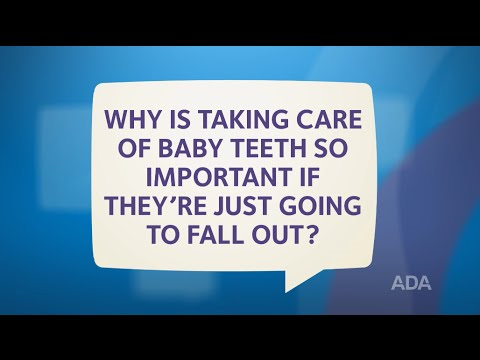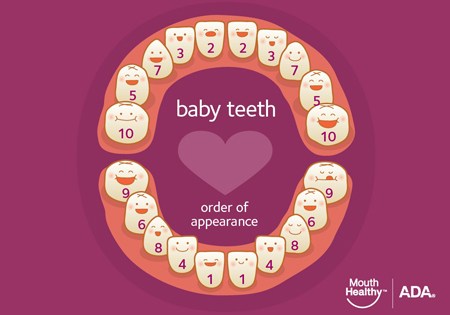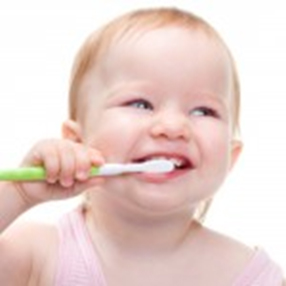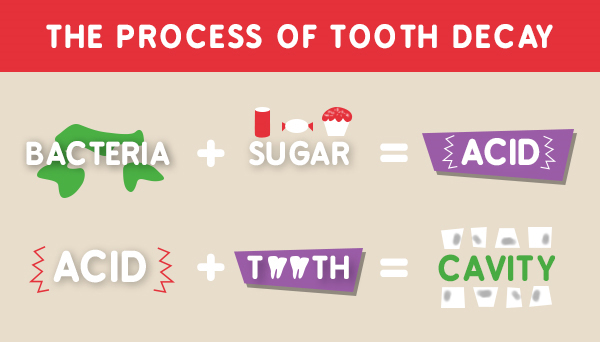Hot Topic Blog - Mouth Development & Function
THE PURPOSE OF BABY TEETHCommentary by Yong Wai Meng, Parent and Writer for Baby JourneyAugust 2017 |
|||
|
Teething can be a painful process for both little ones and their parents. As I watched my children’s teeth erupting, I began to wonder, “What is the purpose of baby teeth?” Babies go through all of the pain just to have them fall out in a few years. Also known as milk teeth, primary teeth, or lacteal dentition, baby teeth typically start erupting any time after six months in a process called “teething.” Teeth generally erupt in pairs, and the first couple that usually emerge are the lower central incisors. Most children have a full set of 20 primary teeth by the time they are two years old. However, what purpose do they serve? Why are they important, and how can we properly care for them? Keep reading, and find out!
First of all, Baby teeth serve as a guide for permanent teeth. Without baby teeth, permanent teeth would grow in all sorts of directions. Essentially, milk teeth carve out a pathway through which permanent teeth can grow. They also hold an appropriate amount of space for developing adult teeth, resulting in straighter smiles. These natural spacers promote jaw development. If a primary tooth is lost prematurely, a space maintainer may be required to save the space. If left untreated, missing primary teeth can cause remaining teeth to shift and fill spaces improperly. Known as crowding, this condition is difficult to treat and requires orthodontic treatment in the future.
http://www.mouthhealthy.org/en/az-topics/b/baby-teeth Secondly, Baby teeth facilitate speech production and development. Learning to speak clearly is imperative for proper cognitive, social, and emotional development. Various structures, including the lips, teeth, tongue, cheeks, and vocal tract, are involved in speech production. Correctly positioned primary teeth facilitate correct speech pronunciation and prevent the tongue from straying while speaking. For example, to produce the “f” sound, you need to touch your top teeth to your bottom lip to cause friction as the air flows out of the mouth. If your front teeth are missing, the sound will be distorted. By the way, did you just try to make the “f” sound after reading this? Third of all, Baby teeth can help promote self-confidence in young children. Taking proper care of primary teeth while your child is a baby can help make your child’s interactions with others in the future more pleasant. Ugly teeth and crooked smiles can be an object of ridicule during childhood and even into adulthood. Damaged and decaying teeth can also cause bad breath which can lead to awkward social interactions. First impressions are paramount, and for people with missing, stained, or crooked teeth, creating a positive first impression may be rather difficult. Unattractive teeth may lead people to be shy and have reservations about being in large public settings. A fourth consideration is that Baby teeth promote proper nutrition. Besides equipping them with proper chewing techniques, baby teeth permit children to easily chew different kinds of food, allowing various fruits, vegetables, and grains to be integrated into their diets. Children with deformed or severely decayed milk teeth are more likely to be underweight, experience dietary deficiencies, and be malnourished. Exposure to a wide range of food helps promote healthy eating habits and proper growth in children.
http://www.kidsmilehigh.com/food-nutrition-guide-kids-healthy-teeth/ As a fifth point, Baby teeth give a healthy start for permanent teeth. Studies indicate that children who experience tooth decay in their primary teeth have a higher probability of developing tooth decay in their permanent teeth than children who maintained healthy primary teeth. Severely decayed primary teeth increase the likelihood of childhood periodontal disease. Periodontal disease results in oral bacteria invading and eroding the gums, ligaments, and eventually bone. If left untreated, primary teeth can completely fall out, causing health and spacing issues for permanent teeth. Caring for your Child’s Primary Teeth -A good oral hygiene routine is an effective way of minimizing the likelihood of cavities, decay, and periodontal disease. -Parents of children should ensure that they brush their teeth at least twice a day while parents of infants ought to gently rub their baby’s gums with a moist cloth after each feeding. -Once your infant’s first tooth erupts, you can purchase a baby toothbrush and toothpaste and get them accustomed to a dental hygiene routine.
https://www.educationaltoysplanet.com/blog/save-the-baby-teeth/ -Sugar heavily contributes to tooth decay or cavities. Sugar is found in varying degrees in almost all food and is even contained in milk. -To ensure that your young children do not experience tooth decay, try to control the amount of sugar they consume on a daily basis. Always read food labels, and choose foods and beverages that are low in added sugar. -Additionally, putting your baby to bed with a bottle can cause tooth decay in the long run. Milk, juice, and formula all contain sugar that pools in the baby’s mouth as he or she sleeps. Do not put your baby to bed with a bottle. Very young babies may need a pacifier to calm. However, pacifier weaning can begin as early as 3 months as there are other safe mouth items that encourage teething as well as calming beginning at this age.
http://www.greatkidssmiles.com/prevention.php The purpose of baby teeth is to reserve space for permanent teeth, help the jaw form properly, and promote proper nutrition. Baby teeth are vital for good oral development. Just because they fall out within a few years of their appearance, they should not be neglected as doing so can cause serious issues for children in the future. About the Author Yong Wai Meng is an Insurance Agent and a father of 3 lovely children. He developed interest and experience when taking care of his children and wanted to blog about it. He is one of the writers for Baby Journey, and here is his email if you wish to contact him: yong@babyjourney.net. |
|||




